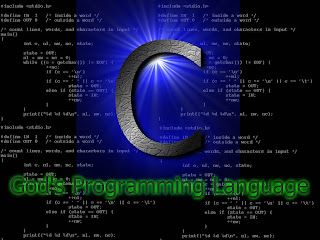| Language | Intended use | Paradigm(s) | Standardized? |
| ActionScript 3.0 | Application, Web, Client-side | imperative, object-oriented, event-driven | 1996, ECMA |
| Ada | Application, Embedded, System and Realtime | imperative, procedural[2], concurrent[3], distributed[4], generic[5], object-oriented[6] | 1983, ANSI, ISO, GOST 27831-88[7] |
| ALGOL 58 | Application | imperative | No |
| ALGOL 60 | Application | imperative | 1960, IFIP WG 2.1, ISO[8] |
| ALGOL 68 | Application | imperative, concurrent | 1968, IFIP WG 2.1, GOST 27974-88,[9] |
| Ateji PX | Parallel Application | object-oriented, pi calculus | No |
| Gr8it | Application | imperative | No |
| APL | Application, Data processing | array-oriented, tacit | 1989, ISO |
| Assembly language | General | imperative, any | No |
| AutoHotkey | Highly domain-specific, GUI automation(macros) | imperative | No |
| AutoIt | Highly domain-specific, GUI automation(macros) | event-driven, imperative, procedural | No |
| BASIC | Application, Education | imperative, procedural | 1983, ANSI, ISO |
| BeanShell | Application, Scripting | imperative, object-oriented, functional, reflective | In progress, JCP |
| BLISS | System | procedural | No |
| BlitzMax | Application, Game | imperative, procedural, object-oriented | No |
| Boo | Application |
| No |
| C | System | imperative, procedural | 1989, ANSI C89, ISO C90/C99 |
| C++ | Application; System | imperative, procedural, object-oriented, generic | 1998, ISO |
| C# | Application, Web | imperative, object-oriented, functional,[12] generic, reflective | 2000, ECMA, ISO |
| Clarion | General, Web, Business | imperative, object-oriented, functional [14] | Unknown |
| Clean | General | functional, generic | No |
| Clojure | General | functional, concurrent | No |
| CLU | General | imperative, procedural, object-oriented, generic | No |
| COBOL | Application, Business | imperative, object-oriented | 1960 |
| Cobra | General, Application, Business, Web | imperative, object-oriented, functional, generic, reflective | No |
| ColdFusion (CFML) | Web Development | procedural, object-oriented | No |
| Common Lisp | General | imperative, functional, object-oriented, reflective, generic | 1994, ANSI |
| Comal 80 | Education | imperative, procedural | No |
| Curl |
| imperative, event-driven, functional, object-oriented, generic, reflective | No |
| Cython | General, Application, Numerical Computing | imperative, object-oriented, functional, aspect-oriented, reflective | No |
| D | Application; System | imperative, object-oriented, generic | No |
| Dylan | Application | functional, object-oriented | No |
| Eiffel | Application | imperative, object-oriented, generic | 2005, ECMA, ISO |
| Erlang | Application, Distributed, Telecom | functional, concurrent, distributed | No |
| Euphoria | Application | procedural | No |
| Factor |
| stack-oriented | No |
| FP |
| functional | No |
| F# | Application | imperative, functional, object-oriented, generic | No |
| Forth | General | imperative, stack-oriented | 1994, ANSI |
| Fortran | Application, Numerical Computing | imperative, procedural, object-oriented, generic | 1966, ANSI 66, ANSI 77, MIL-STD-1753, ISO 90, ISO 95, ISO 2003 |
| Gambas | Application | imperative, object-oriented, event-driven | No |
| Game Maker Language | Application, Games | imperative, object-oriented, event-driven | No |
| Go | Application; System | concurrent, imperative | No |
| GraphTalk | Application | logic-oriented, object-oriented | No |
| Groovy | Application, Web | imperative, object-oriented, aspect-oriented | In progress, JCP |
| Harbour | General, Application, Business, Web, Data processing | imperative, procedural, functional, object-oriented, declarative, generic, reflective | No |
| Haskell | Application | functional, generic, lazy evaluation | 1998, Haskell 98[17] |
| HyperNext | Application, Education | procedural, weakly typed, event-driven | No |
| Io | Application, Host-driven Scripting | imperative, object-oriented | No |
| J | Data processing | array-oriented, function-level, tacit | No |
| JADE | Application, Distributed | imperative, object-oriented | No |
| Java | Application, Web | imperative, object-oriented, generic, reflective | No, Java Language Specification |
| JavaScript | Web, Client-side | imperative, object-oriented, functional, reflective | 1997, ECMA |
| Joy | Research | functional, stack-oriented | No |
| LabVIEW ("G") | Application, Industrial instrumentation and automation | dataflow, visual | No |
| Lisp | Text processing | functional | Unknown |
| Logtalk | Application, Artificial intelligence | logic, object-oriented, event-driven, reflective | No |
| Lua | Embedded scripting, Application | imperative, object-oriented, functional, aspect-oriented, reflective | No |
| Mathematica | Highly domain-specific, Symbolic Computing | procedural, functional | No |
| MATLAB | Highly domain-specific, Numerical Computing | imperative, procedural, object-oriented | No |
| Modula-2 | Application; System | imperative, generic | 1996, ISO |
| Modula-3 | Application | imperative, object-oriented, generic | No |
| Mythryl | Application, Scripting | imperative, generic, functional | No |
| Oberon | Application; System | imperative, object-oriented | No |
| Objective-C | Application | imperative, object-oriented, reflective | No |
| Objective Caml | Application | imperative, object-oriented, functional, generic | No |
| Object Pascal (Delphi) | Application | imperative, object-oriented, generic, event-driven, reflective, aspect-oriented[21] | No |
| Occam | General | imperative, procedural, concurrent, process-oriented | No |
| Oxygene | Application | imperative, object-oriented, generic | No |
| Oz | Application, Education, Distribution | imperative, logic, functional, object-oriented, concurrent | No |
| Pascal | Application, Education | imperative, procedural | 1983, ISO |
| Pawn | Embedded, Host-driven Scripting | imperative | No |
| Perl | Application, Text processing, Scripting, Web | imperative, procedural, reflective, functional, object-oriented, generic | No |
| PHP | Web, Server-side | imperative, procedural, object-oriented, reflective | No |
| PL/I | Application | imperative, procedural, object-oriented | 1969 |
| Plus | System development, Application | imperative, procedural | No |
| Prolog | Application, Artificial intelligence | logic | 1995, ISO |
| Python | General, Application, Scripting, Web | imperative, object-oriented, functional, aspect-oriented, reflective | No |
| REALbasic | Application |
| Unknown |
| REBOL | Distributed | imperative, object-oriented, functional, dialected | No |
| RPG | Application |
| Unknown |
| Ruby | Application, Scripting, Web | imperative, object-oriented, aspect-oriented, reflective, functional | No |
| S | Application, Statistics | imperative, procedural, functional, object-oriented | No |
| S-Lang | Application, Scripting, Numerical | imperative, procedural | No |
| Scala | Application, Distributed | object-oriented, functional, generic, lazy evaluation, imperative | No |
| Scheme | General, Education | functional | 1998, R6RS |
| Simula | General, Education | imperative, object-oriented, event-driven, discrete event simulation, multi-threaded (quasi-parallel) program execution | 1968 |
| Smalltalk | Application, Education | object-oriented, concurrent, event-driven, declarative, reflective | 1998, ANSI |
| SNOBOL | Text processing |
| Unknown |
| Standard ML | Application | imperative, functional, generic | 1997, SML '97 |
| Tcl | Application, Scripting, Web | imperative, procedural, event-driven | No |
| Visual Basic | Application, Education | imperative, component-oriented, event-driven | No |
| Visual Basic .NET | Application, Education, Web | imperative, object-oriented, event-driven | No |
| Visual Prolog | Application | imperative, declarative, logical, object-oriented, functional, event-driven | No |
| Windows PowerShell | Administration | imperative, object-oriented, functional, pipeline, reflective | No |
| XL |
| imperative, concept programming, object-oriented | No |









0 comments:
Post a Comment